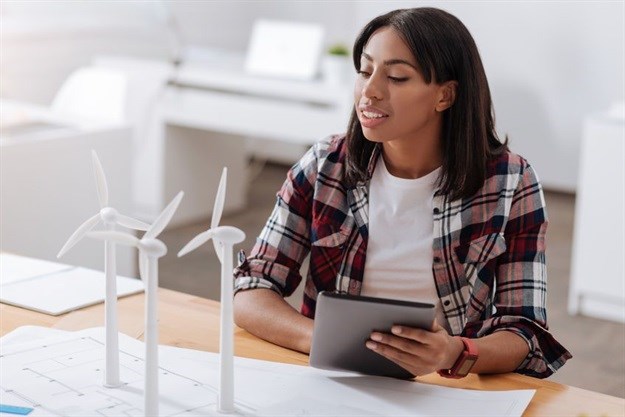
Top stories






More news

















Logistics & Transport
Uganda plans new rail link to Tanzania for mineral export boost









Women in Energy: A global perspective of women in Energy
According to the Clinton Climate Initiative (CCI), there is a gender gap in leadership as women make up only 5% of board executives across the global power and utilities sector. Women’s leadership is essential for the task of building a sustainable energy future, and by not honing the essential skills of women worldwide, the energy sector is profoundly lacking in essential perspectives and innovation. The Women in Power and Utilities Index (2016) tracked the number of women in the boardrooms of the world’s largest utilities in revenue, and it was established that there are 16% women on Power and Utilities boards, with progress at an extremely slow increase of only 1% over three years.
An ROE analysis on the top 200 utilities in the world indicated that the top 20 gender-diverse utilities substantially outperformed the bottom 20, endorsing an obvious connection between gender diversity and financial performance. Energy remains an evolving industry constantly trying to accommodate the growing demand and supply of power to homes, businesses and infrastructure. These numerous challenges call for innovative approaches, and this is why diversity is so significant. Numerous studies have indicated that the more diverse a group, the quicker and easier it’ll be to identify and solve problems and create a competitive advantage by encouraging businesses to consider new methods and practices. A group of men all of similar ages and outlook will in all likelihood maintain familiar structures, however a diverse group of different genders, ages and backgrounds will change the status quo, and increase the possibility of creative thinking.
Overall the energy industry is experiencing an era of transition and transformation, with new fuels, technologies and innovation motivating opportunities. A resilient, reliable and secure energy future is essential for the stability of the global economy. This trend is keenly felt on the African continent where the development of renewable energy and energy efficiency schemes will create business opportunities, provide employment, and enhance economic development enabling women to participate in the development of sustainable projects.
The AEI 2018 Women In Energy Conference facilitates an interactive hub that enables leading women within the energy sector on the continent and beyond, the opportunity to network, share knowledge and achievements and encourage the further advancement of women across all sectors of the energy industry. The industry is buoyant with opportunities for multiple skillsets, and these include for example, Project Mangers, Electrical Engineers, Mechanical Engineers, Technicians, Developers, Distribution Engineers and Project Coordinators. Increasing numbers of women have started crossing the bridge from Technology companies into the Power and Utilities industry. Hence, those women aiming to develop a career in the energy sector in Africa, women energy entrepreneurs, high-potential women looking to enhance and advance their careers, need to attend this invaluable hive of information and knowledge-sharing.
Drawing women into this historically male-dominated sector remains a continuous challenge for many companies. Companies with diversity and inclusion agendas must be willing to provide training and support where necessary as diversity is no longer a gender issue; it has morphed into a business-critical issue.
The Africa Energy Indaba also aims to provide a working space for both men and women in leadership C-Suite roles the opportunity to create a forward thinking and visionary workplace of the future. Therefore, industry professionals responsible for hiring, developing and advancing an unbiased workforce need to avail themselves of this opportunity to connect with some of the brightest minds and dynamic thinkers the industry has to offer to help diversify the power workforce and take the energy industry forward.
Gender parity in leadership needs to be addressed, and shining a spotlight on this critical area and making it part of an organisation’s agenda could alter the approach towards a pro-active gender inclusive leadership in energy in the future.